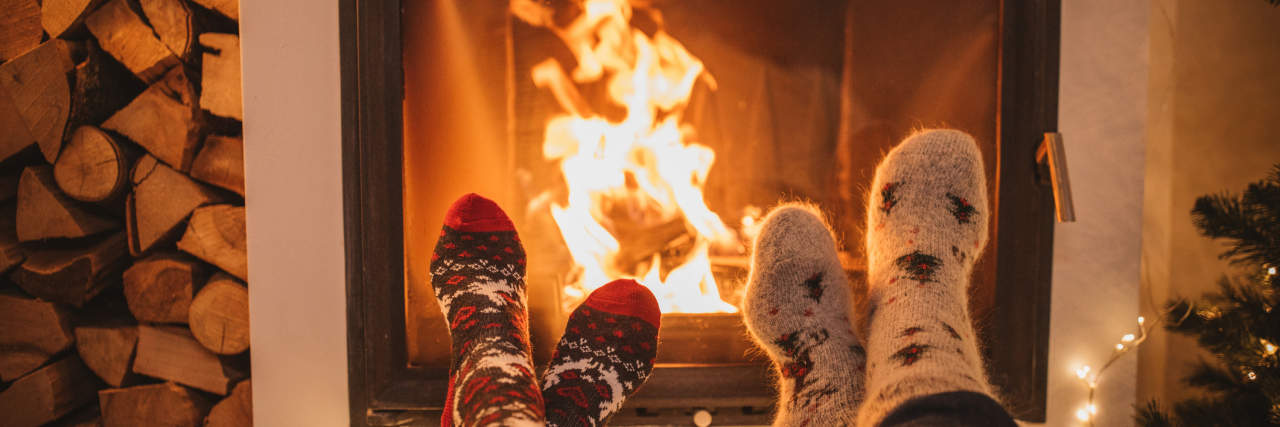6 Things You Don't Have to Do During the 'Most Wonderful Time of the Year'
Holidays can be a lot of things: a time for joy, gift-giving, family and mandatory carol singing. It can also be a time filled with stress, routine changes and pressure to participate in activities you might not usually partake in. It seems like all these expectations exist around what the holidays are supposed to be — but when you live with a mental illness, mental health challenges or any kind of health challenge, really, it might be more difficult or nearly impossible to make these expectations a reality.
Who cares?
We officially give you permission to take what you think you’re supposed to do around the holidays and let it go. The holidays are what you make of them, and no holiday is worth sacrificing your mental health and well-being.
In the spirit of holiday cheer, here’s a not-all-inclusive list of things you don’t have to do around the holidays.
Feel free to do — or not do — as much as you wish.
1. You don’t have to be happy all the time.
Hey, just because it’s called the “happiest season of all” doesn’t mean that’s true for you — and that’s OK. Although there are a lot of things to enjoy about the holidays — friends, family, food, parties (if you’re into that sort of thing) — there’s nothing written in stone that says these things have to make you happy. The 11th commandment is not, “Thou shall always be merry on Christmas — or else.”
In fact, if you’re one of the half a million people in America who experience seasonal depression, depressive symptoms actually peak during during December, January and February. So if you’re feeling down, don’t fake it for the sake of the holidays. Acknowledge what you’re feeling and make sure you’re still getting the help you need. It would be nice to be happy around the holidays, just like it’d be nice to be happy all year round — but don’t be hard on yourself if this isn’t the case.
2. You don’t have to attend every holiday party you get invited to.
If the pile of invitations on your kitchen table is inspiring more anxiety than glee, don’t feel like you have to attend them all. Maybe a small friend gathering is more your style than your corporate office party. It’s not rude to pick and choose which gatherings work for you. Feel yourself out before forcing yourself to go out — if being around people actually hightens your mood, by all means, party on. If you think the gathering will inspire more stress than joy, let yourself sit this one out. And if you need to, there’s nothing wrong with leaving a party early.
3. You don’t have to find a “perfect” gift for every one of your friends and family.
Presents have became almost synonymous with the holidays, and while material things can show the people in your life you care, they’re by no means the only or the best way. If choosing presents is something that adds to your stress, it’s OK to give small gifts, write cards or do whatever you can do to show the people in your life they’re important to you. Gift-giving is not going to make or break your relationships for the rest of the year. It’s supposed to be a fun thing, so don’t put too much pressure on yourself.
4. You don’t have to break your routine.
If getting enough sleep, exercising, eating well or taking time for yourself are important parts of your wellness routine, don’t feel pressure to drop everything because the holidays have taken over. If you’re going to be a few hours late to that Christmas party because you usually take time to meditate on Thursdays — do it. If waking up early to make that extra batch of cookies means you’re going to lose sleep, and sleep is important — sleep. Don’t let the seasons dictate your schedule — stick to what works for you and participate as you can. As important as it is to be flexible (If you’re not excited to meditate and would rather go to the party on time, that’s your call!) don’t go cold turkey on your wellness routine either. Listen to yourself.
5. You don’t have to participate in traditions that don’t make you happy.
Traditions can be a wonderful source of comfort for some, but don’t feel pressure to participate in anything that doesn’t make you happy. If you don’t like decorating your house or if you can’t go to sleep knowing the Hanukkah candles are still burning, adjust as necessary. Create traditions that work for you. The best tradition of all could be maintaining a sense of well-being during the holidays.
6. You don’t have to make a resolution.
Recovery is a year-long process. Don’t feel pressure to greet the new year as an “all new you.” Recovery involves setbacks, reaching little goals and practice. There’s sometimes not a black and white “before and after.” Use the new year to reflect, plan and set goals — but don’t get caught up in its hype. Wherever you’re at on your recovery journey right now is where you’re supposed to be — there’s no magical holiday or New Year’s Eve dust that makes everything perfect. Look to the future with hope, but don’t put pressure on yourself with strict goals.
In short, don’t forget about what you need during the holidays. You can still be there for loved ones and show them you care without sacrificing how far you’ve come. The most important thing you can give to yourself — and those who care about you — is taking care of yourself.

